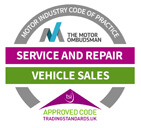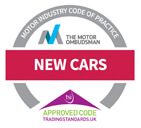What makes an expensive personalised number plate?
What is it about private number plates that the UK is so fascinated with? In the thirty years the DVLA has been selling them to the public, around six million personalised number plates have been sold, generating a cool £2 billion for the treasury. Last year, £116m was spent on 404,000 DVLA private registrations, with the majority of that spending coming from base price sales of £250.
Of course, in among the masses of lower-price sales are the more expensive plates that truly stand out on the roads – plates that are worth mind-blowing amounts of money, ranging from a few thousand pounds through to six, even seven figure sums. While there are certainly willing buyers out there, the question is – what makes a few letters and numbers on a piece of yellow plastic so absurdly valuable?
‘Cherished’ plates and popular names
The increasing value of personalised number plates likely boils down to two things: the public’s personal connection with their cars and the nature of supply and demand.
On the first point, many of us develop a sense of emotional attachment to our cars, wanting to add personal touches that add a certain something to our vehicle ownership. For a lot of people, the best way to do that is to get a personal registration, which in turn creates the demand for them.
Demand is also created by the limitations applied by legislation. There are only so many ways you can spell out a name or meaningful word within the parameters of a legal number plate. This makes plates that spell out popular names more expensive due to their increased desirability. Thus, the Georges, Olivias and Jacks of the world will have to stump up more to see their name on their cars.
Older, shorter number plates also hold more value. In the early days of vehicle registration, number plates featured a number from 1 through 9999, followed by either one or two letters – much different from newer plating that involves more characters and generic dating. Couple such short supply of these older options with the unique desirability of combinations such as “A 1” or “111 A”, and you can start to travel into the lofty realms of spending discussed above.
These shorter character and popular name registrations are deemed ‘cherished plates’, a term given to indicate the combinations that hold considerable value.
Finding a cheaper alternative
For those of us either not inclined or financially endowed to buy one of these pricier private number plates, new style registrations offer an opportunity to get a personalised touch for less. Thanks to the increased number of character elements on newer plates, many more combinations are available to choose from at a significantly lower price.
So, if you can come up with a number/letter combo that means something to you, a newer, longer option should only set you back the base price of £250 from the DVLA, or potentially even lower at auction.

 Find us
Find us
 Contact Us
Contact Us


 My account
My account













